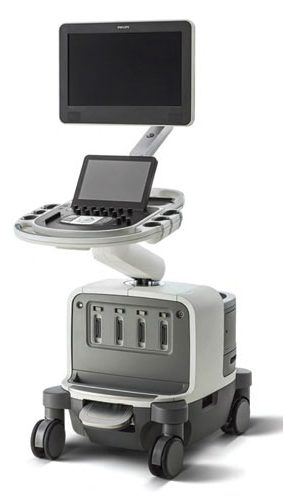National Ultrasound
First Annual Ultrasound Review Contest Round 1 Winners
 National Ultrasound’s 1st Annual Review your Ultrasound Machine contest is now complete. We want to thank all of those who participated and shared their experiences and professional opinions of the ultrasound machine they regularly use.
National Ultrasound’s 1st Annual Review your Ultrasound Machine contest is now complete. We want to thank all of those who participated and shared their experiences and professional opinions of the ultrasound machine they regularly use.
We received hundreds of responses and narrowed it down to 26 reviews to receive a prize for their submissions. 25 of those reviews will receive a prize of $50.00 and 1 grand prize winner $1,000.00.
This week we will be announcing the first 5 winners and sharing their reviews. Over the next several weeks we will continue to announce winners and their reviews wrapping up with the grand prize $1,000.00 winner. Stay tuned to see who won and hear what they had to share about their ultrasound machine.
Our first 5 winners who will receive a $50.00 prize are:
- Quiomara Melendez, RVT, RDCS
- Jessica Smith, RDMS
- Jaimie Perry, RDMS
- Sabrina Guidry, RDCS
- Johnny Byl, RDCS
These reviews were each about the Philips Epiq 7, and here is what they had to say about this excellent unit.
Philips Epiq 7 Ultrasound Machine Reviews
Quiomara Melendez, RVT, RDCS
The Philips Epiq7 has been a great machine since it first debuted. (Note, this review is from a cardiovascular sonographer who uses the Epiq7 mainly for pediatric echocardiograms, adult echo and fetal echo). The penetration and resolution of this machine is leaps and bounds above its predecessor the IE 33. I have noticed a lot of problems with the s8 probe and the CW features on the S8 and X5-1 transducers which is my main complaint about this machine. Also, the autoscan feature is great for larger patients, but it lags and degrades image quality for infants and patients with higher heart rates. I believe Philips recognized the S8-3 issues when it came out with the s9-1 transducer for their CVX software. That S9 gives probably the most gorgeous image quality on any machine I’ve worked on. The Epiq also has a great coronary feature to fill in the coronary arteries on our pediatric patients. I can’t forget to mention that this machine does perform 3D beautifully.
Jessica Smith, RDMS
The current ultrasound system we use at our facility is a very great machine especially for breast imaging. The post processing feature is a great tool. I really love it for panoramic image post processing. It helps to make quality and ideal images for the radiologist to make diagnoses. I love the small hockey puck transducer which is ideal for looking at superficial skin lesions. It is beneficial when I am trying to determine if something I am seeing is in the breast tissue versus the skin! The quality of the ultrasound unit is excellent. We haven’t had many issues with it. No major technical difficulties. It’s easy to use and ergonomically friendly making scanning easier on the eyes and body. One thing I don’t really like is the filter underneath the machine. The air filter is not the easiest to clean like with other ultrasound units I have worked with. Our company ended up buying mini vacuums to clean the filter which makes it easier to clean and I can clean the filter in less time than before. The placement of the filter can be challenging at times to get to. Because it’s so far underneath the machine it requires me to get down on my hands and knees to remove it, clean it, and then put it back. Overall I enjoy working with the Epiq system. It has a few more features than the IU22. The image quality of the Epiq system is different from the IU22 even the GE, but overall the images are great and the sonographer has many features to use to better optimized images!
Jaimie Perry, RDMS
The Philips Epiq 7 Ultrasound machine is a great machine and very useful in the maternal fetal center using it to determine any defects in fetal anatomy and gives us the proper tools and settings in fetal echoes to allow us to diagnose and rule out heart defects with color flow mapping and Doppler. The image quality is superior to the IU22 especially with obese patients. My department is very pleased to have the new Epiq from Philips allowing us to have more quality scans and not requiring as many follow up anatomy or fetal echoes due to low quality scans.
Sabrina Guidry, RDCS
Epiq is an excellent machine from start to finish. Maneuvering it through the hospital and setting up bedside is easy and allows me to perform echos with better body mechanics. I would never purchase a machine that didn’t allow proper body mechanics. The repetitive and static nature of echo increases the likelihood of injury. I have an old lower back injury so this is important to me.
The buttons are positioned in a way that lets me scan without looking down unless I’m making a measurement. This helps make the best use of my time. Bonus for all the measurements packages making sense. I dislike searching for a measurement to find it randomly placed. Our machine was updated to reflect the new XRes and it’s really nice. I enjoy playing with my setting and optimizing for my patients.
M-Mode is beautiful, and color doppler is very smooth. I’ve had no problems with the CW or PW. I wonder what Acuson does to make their Dopplers look so nice. I wish Epiq could mimic Acusons doppler.
Overall, I’m very happy with the Phillips Epiq. We also have IU22 and IE33. It’s too bad they are outdated, they are good machines too. They actually have better contrast with less grain.
Johnny Byl, RDCS
The Epiq 7C has provided us with excellent images. The 3D capabilities have been superior to other 3D systems that I have used in the past. Images are crisp and clear. The echo cart has touch screens which are more inline with today’s technology making it easier to operate as well as perform quicker exams. The ability to have 4 probes (2-2D and 2-3D) gives us more opportunities to acquire 3D images when assessing congenital heart disease.
In addition to the simplicity of the Epiq 7C, are the calc packages that are installed on our carts. This gives us the ability to do advanced measurements, several which are virtually done by the machine, helping increase the level of care the cardiologist can provide to the patient. This is especially true with regards to adult congenital patients. Moreover, the 3D TEE probe has excellent 3D capabilities. The image clarity is amazing and many times we find ourselves acquiring more images than necessary due to the quality of images.
More about the Philips Epiq 7 Ultrasound Machine from National Ultrasound
The Philips Epiq 7 Ultrasound Machine is a console ultrasound with beamforming and processing image architecture designed to greatly improve spatial, temporal, and contrast resolution. The Epiq 7 is from the Philips Ultrasound Epiq line, and is compatible with Philips premium xMATRIX ultrasound transducers.
It is fitted with a 21.5″ High-resolution LCD wide screen monitor, a 12″ touchscreen user interface, and an array of different imaging modes such as 2D, 3D, 4D, M mode, M-color Flow Mode, Anatomical M-mode, Trapezoidal Mode, Color, Power Angio, Pulse Wave Doppler, Bi-directional Power, SCW Doppler, Tissue Doppler Imaging.
The Epiq 7 ultrasound machine includes features such as:
- Tissue Harmonic Imaging
- Spatial Compounding
- Speckle Reduction
- Auto Image Opt(B mode)
- Auto Image Opt Doppler
- Write Zoon
- Triplex Mode
- Automated B/M/D Measurement
- Automated LH Measurement
- Live Dual (B/BC) Mode
- SmartExam or Ease Protocol
- Raw Data File
- Flexible Report
The Philips Epiq 7 Ultrasound Machine is designed for a wide variety of applications including Cardiovascular, OB-GYN, Abdominal, Anesthesia, Breast, Musculoskeletal, Pediatric, Thyroid, Transcranial Doppler, Urology, Vascular, and Venous imaging applications.
Learn even more about the Philips Epiq 7 Ultrasound Machine carried by National Ultrasound.

